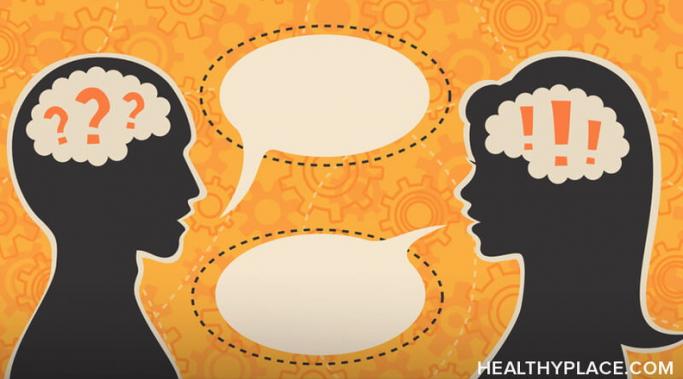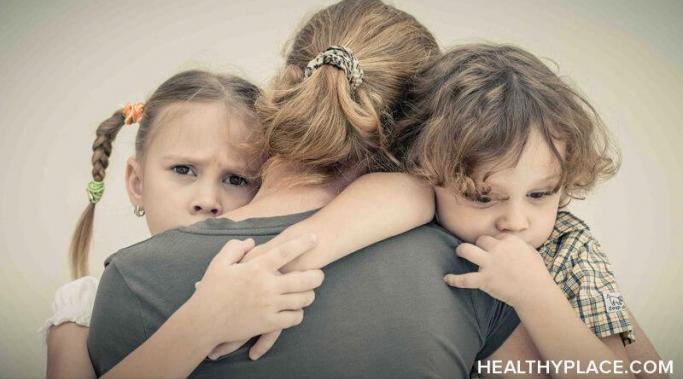If you have dealt with any patterns of disordered eating in your life, chances are these behaviors were—or continue to be—fueled by negative self-talk around body image. Since the brain is a complex, independent, thinking organism, self-talk is an intrinsic part of the human experience. You are hardwired for internal dialog with yourself, and this is not always problematic. That endless stream-of-consciousness in your head is shaped by the beliefs, perspectives, attitudes, and observations that help you negotiate the world around you. When used constructively, self-talk can empower you to confront fears, gain motivation or discipline, boost confidence, and strengthen areas of improvement. But if this self-talk turns critical toward yourself—in particular, how you look or what you weigh—it causes shame to take root and harmful behaviors to manifest which could result in an eating disorder. So it's important to learn how to reframe your negative self-talk around body image into a kinder, more compassionate dialog.
Eating Disorders Treatment
It's my final post on "Surviving ED" for HealthyPlace and I part with a hopeful goodbye. I've been grateful for the opportunity to write about and raise awareness of eating disorders. In recent years, I've witnessed the tide turning as the conversation about eating disorders has focused on its complexity and diversity. I hope that together, as survivors and mental health professionals and advocates, we continue chipping away at the stigma that accompanies food-related mental illness, so that more and more individuals struggling in isolation can get the help they need.
Eating disorder recovery is arduous enough on its own, but add in the harmful reality that some eating disorder behaviors are endorsed by wellness culture, and healing from this issue can seem downright impossible at times.
There is a common—and dangerous—eating disorder stigma in society that says eating disorders result from vanity and a need for attention, but the truth is, eating disorders are not for the vain. This eating disorder stigma minimizes just how severe and catastrophic these illnesses can become while reinforcing the belief that sufferers cannot reach out for help, lest they be dismissed as attention-seekers fixated on their own appearance. But in order to dismantle this added layer of cultural stigma that keeps so many victims both silent and ashamed, it's important to realize that eating disorders are not for the vain. Rather, they are caused by intricate, nuanced factors that are often unrelated to vanity and rooted instead in trauma, self-loathing, or insecurity.
Culturally, eating disorders are often associated with young teenagers who don't know exactly how to cope with their developing bodies or fluctuating dynamics in their families and peer groups. But as teens become older and transition from high school to the broader world of a university campus, they can be even more susceptible to disordered eating behaviors. The risk of eating disorders in college students has continued to escalate these past several years, and there are multiple reasons behind the persistence of this issue.
Secrecy and bulimia (and all eating disorders) often go hand in hand. But this is especially true for bulimia, where people struggling with the illness may not appear to be unwell. There are so many unspoken layers of complexity to the disease that a person can suffer for years without getting the help that they need. But breaking the secrecy around bulimia is one of the best antidotes to isolation and stigma. By opening up and sharing their difficulties around food with others – even anonymously – people can stop the illness from worsening over time. Talking about it out loud is often the first step towards healing. So, how do people go from years of silence and secrecy about bulimia to admitting that they have a problem?
What are the indicators that an eating disorder has led to suicidal ideation? Are there shifts in mood or patterns of behavior to look for in people who battle this disease? How common is suicide in the disordered eating population, and which signs need to be taken seriously as cries for help or intervention? (Note: This post contains a trigger warning.)
I have taken numerous stabs at eating disorder recovery in the past decade, and until just a couple years ago, these attempts were unsuccessful. Why did I continue to revert back to an illness that sabotaged all the dreams and plans I envisioned for my young life? The answer is simple, but it eluded me for years, and perhaps it has eluded you too. So here is the truth I have since come to learn—you have to want eating disorder recovery for yourself. This must be the purpose that fuels your desire, resolve, and persistence to heal. Otherwise, the motivation you feel at the start of this journey will be unsustainable and short-lived once the obstacles emerge. Once I made that connection, it transformed my whole mindset around healing, so this is why I cannot stress enough, you have to want eating disorder recovery for yourself—and no one else.
There have been countless moments during my time in both outpatient therapy and inpatient treatment when a certain fear held me back from embracing true recovery—the question, "Who am I without my eating disorder?" I knew the illness had starved my body, wrecked my relationships, consumed my mind, and seduced me into harmful decisions, but I clung to it still as my one source of identity. I was terrified of losing the behaviors that I assumed—inaccurately—made me both special and unique.
Are eating disorders hereditary? What is the connection between eating disorders and heredity? Are some people more genetically predisposed to these illnesses than others? Sure, psychosocial factors—such as environmental influence and media exposure—can lead to disordered eating behaviors, but what about the biological piece? It strikes me as curious that my mother, grandmother, and great-grandmother all exhibited tendencies around both food and body image that I know to be consistent with eating disorders. And moreover, I cannot help but wonder if there is a genetic link between these patterns of generational dysfunction and my own battle with anorexia. So this curiosity has prompted me to delve into what science might reveal in terms of eating disorders and heredity.









